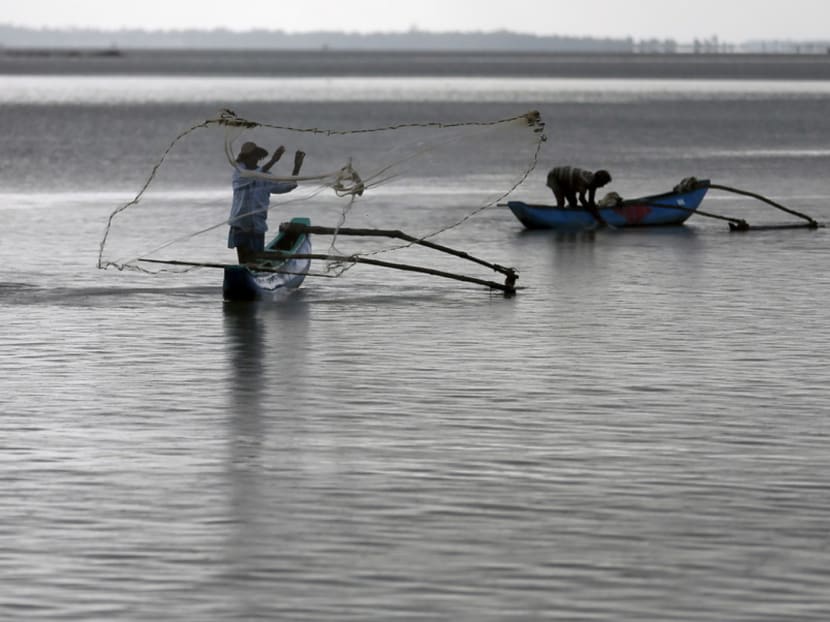Warming Indian Ocean is ‘an ecological desert in the making’
NEGOMBO (Sri Lanka) — Mr Anslem Silva has fished for four decades from this popular harbour on Sri Lanka’s west coast, but for five years now, filling his boat has become increasingly difficult.

A lack of food for the fish themselves, driven by global warming, has led to lowered catches for Sri Lankan fishermen. Photo: Reuters
NEGOMBO (Sri Lanka) — Mr Anslem Silva has fished for four decades from this popular harbour on Sri Lanka’s west coast, but for five years now, filling his boat has become increasingly difficult.
“We seem to be spending more and more time out at sea looking for fish. Where there were fish for decades, now there is very little. It is strange, but all of us have been noticing that,” said the 54-year-old fisherman, who operates his own trawler on multi-day trips that reach 100km to 150km off the coast.
Overfishing is responsible for some of the lowered catch, but another problem may also be contributing: A lack of food for the fish themselves, driven by global warming.
“Rapid warming in the Indian Ocean is playing an important role in reducing phytoplankton up to 20 per cent,” said Adjunct Associate Professor Roxy Mathew Koll, a scientist at the Centre for Climate Change Research at the Indian Institute of Tropical Meteorology in the Indian city of Pune.
In the last six decades, rising water temperatures appear to have been reducing the amount of phytoplankton — microscopic plants at the base of the ocean food chain — available as food for fish, according to research released last December by Prof Koll and other scientists from the United States, South Africa and France.
That “may cascade through the food chain, potentially turning this biologically productive region into an ecological desert”, said Prof Koll.
According to the scientists, such a change would curb food security not only in Indian Ocean rim countries, including India, Sri Lanka and Bangladesh, but also in global fish markets that buy from the region — such as the US, Europe and Japan, he said.
As waters in parts of the Indian Ocean have warmed by 1.2°C over the last century, the mixing of surface water and nutrient-rich deeper waters has slowed, said the scientists. That has prevented nutrients from reaching the plankton, which are mostly active in surface waters.
“The vertical mixing (of water) is a critical process for introducing nutrients into the upper zones where sufficient light is available for photosynthesis,” said Dr Raghu Murtugudde from the University of Maryland.
The researchers said recent data showed phytoplankton levels falling dramatically in some regions that are traditionally home to large shoals of fish, such as near the Kenyan and Somali coasts. Prof Koll predicted fish stocks could decline significantly further in the face of continued overfishing and ocean warming.
“All of the state-of-the-art climate models unanimously project that the Indian Ocean will continue to warm under increasing greenhouse gases. This will result in a further decline of the phytoplankton ... exaggerating the stress on the marine ecosystem and the fish, which are already affected by overfishing,” he said.
Fishermen in Sri Lanka say they already see the number of fishing boats in some of the country’s ports declining as a result of the changes.
“It is very difficult to operate a new boat, so few people now want to get into fishing at a large scale,” said Mr Mohamed Riyazudeen, who works as a boat captain from Valaichchenai, an important fishing port on Sri Lanka’s east coast. He called the research on ocean warming very bad news. “What are we to do? We don’t know any other trade and, if there is no fish, what are we to catch?” he asked. REUTERS






